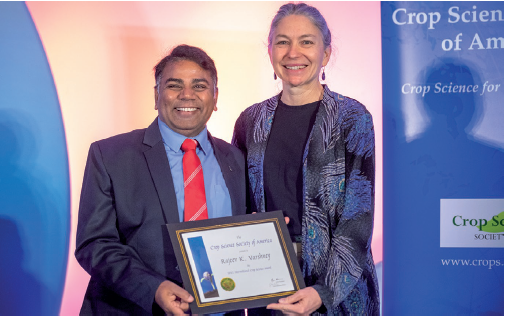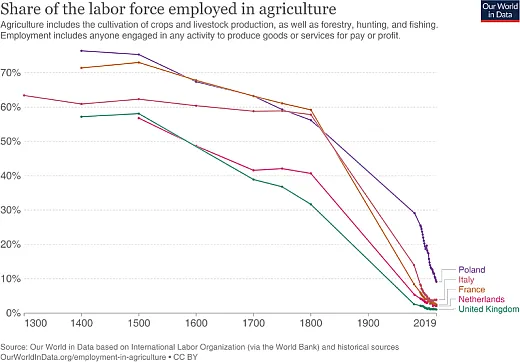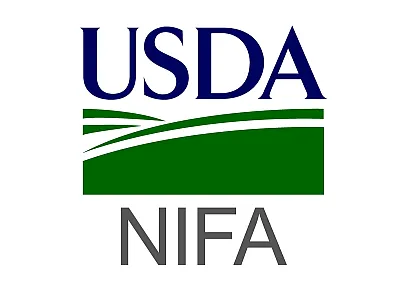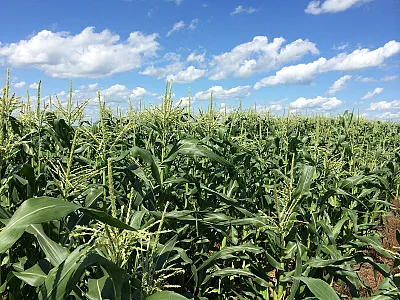The Importance of Awards for CSSA

In 2020, on-farm employment was 1.4% of the U.S. labor force. Compare this to 4.1% U.S. on-farm employment in 1983 when Dr. Barbara McClintock won the Nobel Prize for her work on transposable elements in maize. Or 1970 with 7.1% U.S. on-farm employment when Dr. Norman Borlaug won the Nobel Peace Prize for his work in feeding the hungry. Much has changed in the world since then, but incredibly, 1 in 10 nationally and 1 in 4 globally remain food insecure.
Clearly agriculture is now a much smaller component of the U.S. labor force, and this is true for most developed nations. Agriculture is also no longer a major economic driver, providing a 5% share of GDP at $1 trillion to the U.S. Food expenses, incredibly only 10.3% of U.S. household budgets, have become a smaller proportion of income or effort than at any time in history! Yet farmers keep producing more than ever. Absurdly, farmers’ share of GDP and food costs continue to fall, now receiving only 7.4 cents out of every food dollar.
Agriculture remains an amazing story of success and transformation. Agricultural innovations developed in the public sector were enhanced and commercialized by the private sector and then adopted by farmers, largely due to the tireless work of USDA and land grant educators. Unfortunately, this dramatic constant success has also most hurt our discipline’s visibility. With only 1.4% of U.S. labor, 5% of GDP from agriculture, and consumers spending only 10.3% on food, agriculture has faded from the average American’s mind, replaced by other issues. Crop science may be a victim of our predecessors’ successes.
Overcoming the Recognition Deficit
It's especially surprising there have been only a few major step changes impacting U.S. agricultural production: the Haber–Bosch process, the tractor, the combine, hybrids, irrigation, glyphosate tolerance, and a fairly short additional list. The key to U.S. agriculture’s amazing story of productivity gains, compared with other industries, has been a slow and steady improvement rather than the breakthroughs Nobel Prizes are awarded for. So it’s both incredible and unsurprising that only three Nobel Prize winners seem to have conducted work remotely connected to agriculture over the last hundred years.
Notably, to address this deficit, Dr. Borlaug used his connections and political power to start the World Food Prize (WFP), a top award available to crop scientists. Yet, with a shrinking audience in positions of power focused on agriculture, WFP has not yet had the same clout as Einstein’s Nobel Prize, despite saving FAR more human lives.

Another high level of U.S. award prestige comes from the National Academy of Sciences or NAS (unfortunately there’s no National Academy of Agriculture). Very few NAS members are remotely involved in agriculture and fewer yet are CSSA members. Why does this matter? Increasingly, resources and faculty position decisions in universities are dictated by things like Nobel Prizes, national academy membership, or other prestigious awards. I recently reviewed University Distinguished Professor applications (UDP, the highest award across each university) and found the major components that existing UDPs from other disciplines care about when selecting new UDP members are citations and prestigious awards. Many universities’ decisions are influenced by UDPs, and crop science and allied disciplines can’t elevate our colleges and departments if we’re not at the table. One award that got the attention of UDPs was society Fellow. Fellow of CSSA is our most prestigious award to which we only award 0.3% of membership per year. [Note, if we grow our CSSA membership, we grow our number of Fellows.]
To eventually become a CSSA Fellow, it helps to have won previous awards. In CSSA, as well as ASA and SSSA, we have many awards available. Helpful awards can also come from institutions or other societies. As one of my mentors informed me, once someone gets one award, it is much easier to get the next one; if for no other reason than there is an application packet to tweak versus write. It is easier to become a NAS, UDP, or CSSA Fellow if your scientific societies have already elevated you.
For the overall success of our disciplines, awards are critical. If we don’t recognize our best, no one in other disciplines will.
For our overall disciplines’ success, awards are critical. If we don’t recognize our best, no one in other disciplines will. There are other reasons why CSSA awards are important. They help our members get jobs, especially at the early career stage. Manuscripts matter, but a poster win, a graduate student award, or even a Golden Opportunity Scholarship can be the difference between one of our members being selected for that first job versus a non-member. More holistically, awards also build a sense of belonging and community. After COVID, we’ve all been, and all felt, increasingly isolated. An award is an acknowledgment that the work we do matters and that we matter. Even when not selected, many nominees seem honored to be nominated by colleagues.
To reach our CSSA and institutional goals, it’s especially important, however, that the committee racks their brain for recipients who are not white and male. This can be done fairly and without (reverse) discrimination following a process to prevent implicit bias. Brainstorm every possible candidate you feel deserves the award. Then brainstorm every possible candidate with criteria that they cannot be white and/or male. Then compare these one or more candidates for who most deserves the award and who is most likely to win. In selection, I personally also try to consider adversity overcome in achievements; for example, relocating a life from a foreign country would be a huge additional struggle natives did not have to face.
I have heard cynics (including past winners) complain about awards as “participation trophies” and “not worth the paper they are printed on” (CSSA does use some really fancy paper though). But to complain about awards misses the importance of awards to both recipients and to our discipline and denigrates colleagues who have previously received them. We can be humble without being dismissive. We need awards to elevate our discipline. We also need awards to elevate our members within institutions. We need awards to build a sense of community. I believe we also need awards for CSSA to survive.
Initiate Awards by 1 March
Please visit www.crops.org/awards to get CSSA awards for your colleagues who are “out, standing in the field” initiated by 1 March. (Initiated means logging names into the online system.) The final packets are due 9 March. The same deadline apply for ASA www.agronomy.org/awards and SSSA www.soils.org/awards. Especially consider our early career and future members, who will continue to be more diverse in ethnicity, race, gender, and discipline. Support these early career members to be the next Fellows of CSSA, NAS members, and UDPs. Help convince those you feel are worthy to apply. Support them to ensure our discipline and members are included in future decisions about federal, institutional and college priorities. Our disciplinary legacy depends on it.
Award Application Strategies
For simplicity, two main award application strategies exist: nominator develops a packet or nominee develops a packet. I like to think historically the first was most common when awards were rarer and less necessary. However, the nominee has the most to gain, and colleagues are [overly] busy and increasingly self-focused. From one-on-one discussions, I would guess most successful application packets are developed by the nominee themselves. That is, in part, why the CSSA board approved for the first time this year that self-nominations will be accepted for all CSSA awards except Fellow. For individuals reading this, you may not feel you are 100% qualified for an award. It is important that you step out on a limb and aim high throughout your career. Developing a nomination makes you reflect on your career and think about your future career trajectory. Advancing your name can also open doors to new opportunities.
However, self-nominations of awards may abdicate responsibilities of colleagues, departments, and institutions in promotion. Self-nominations also minimize “sense of community” benefits. One successful strategy is departmental award committees. These committees create a process and deliberative effort to promote their best colleagues. A group of people setting aside time to brainstorm and evaluate potential candidates for every award is likely to improve outcomes of a nominee for every category. And like the lottery, the more category tickets submitted, the more likely your department will win.
Text © . The authors. CC BY-NC-ND 4.0. Except where otherwise noted, images are subject to copyright. Any reuse without express permission from the copyright owner is prohibited.











